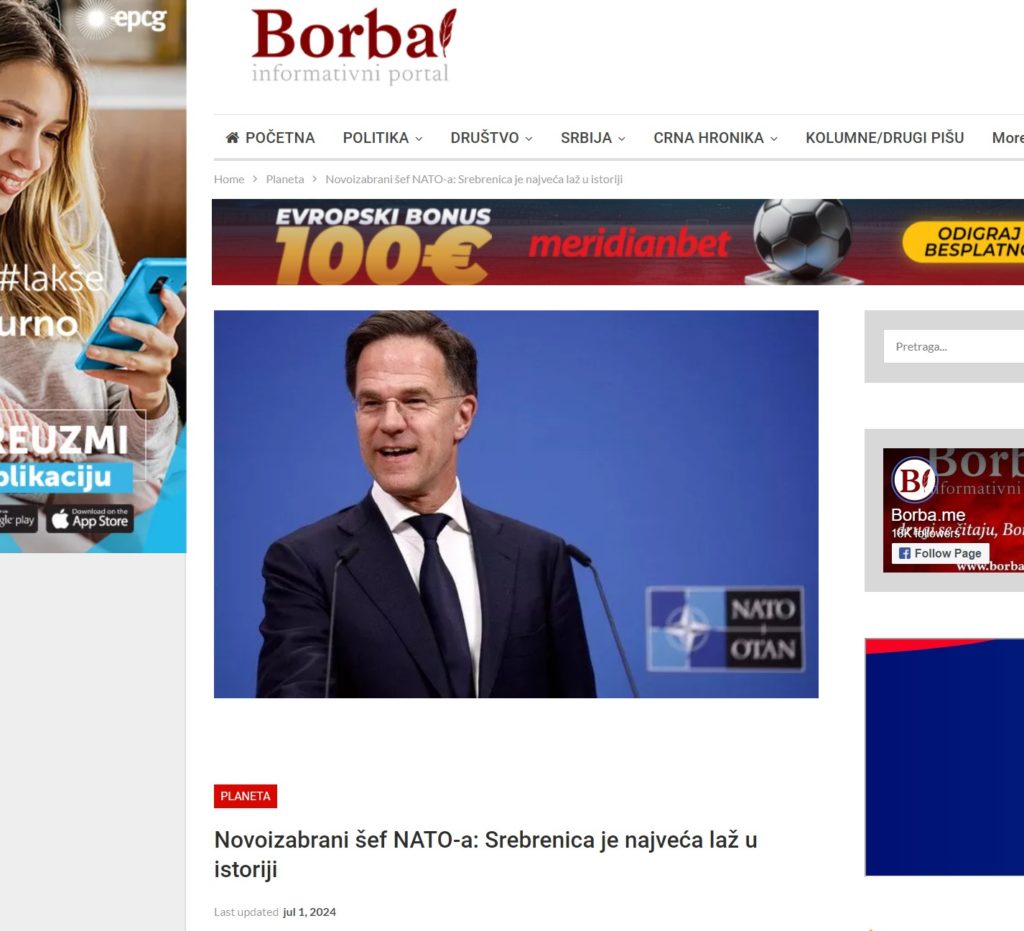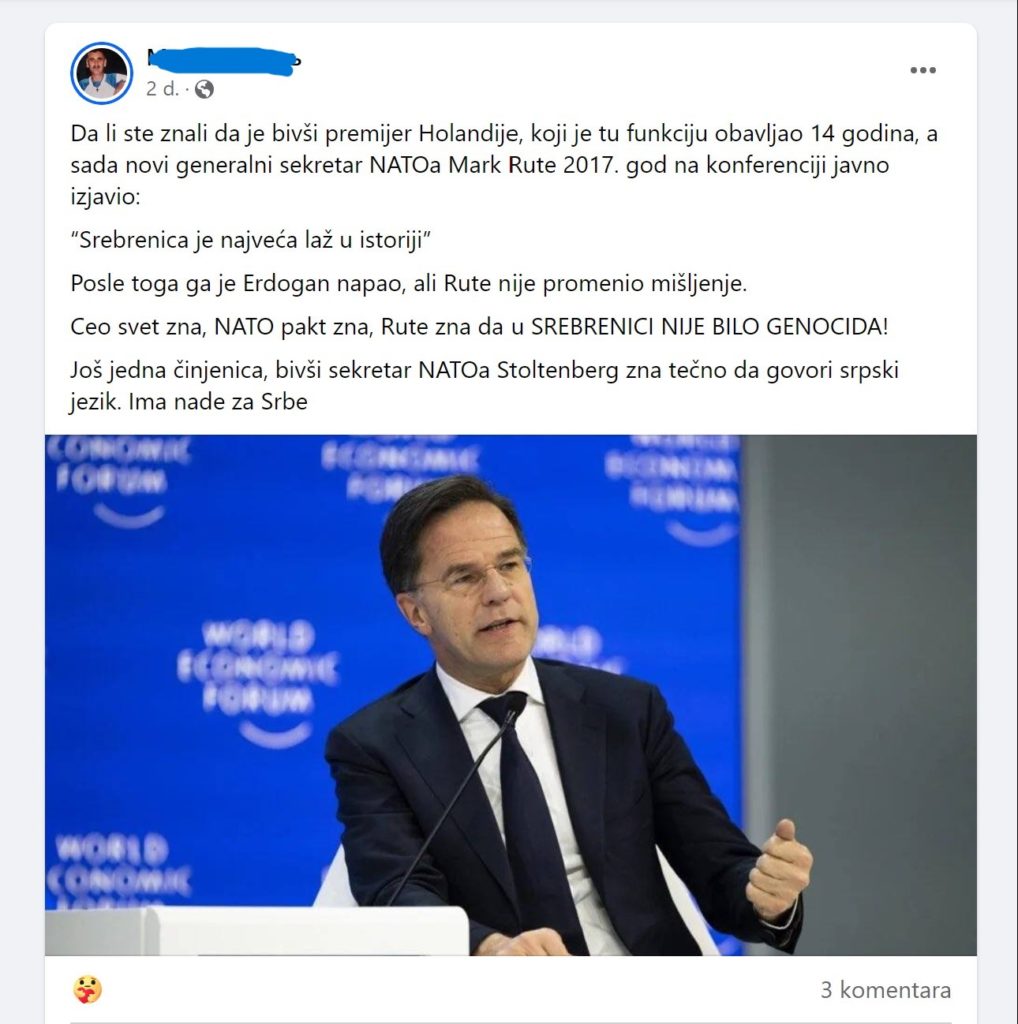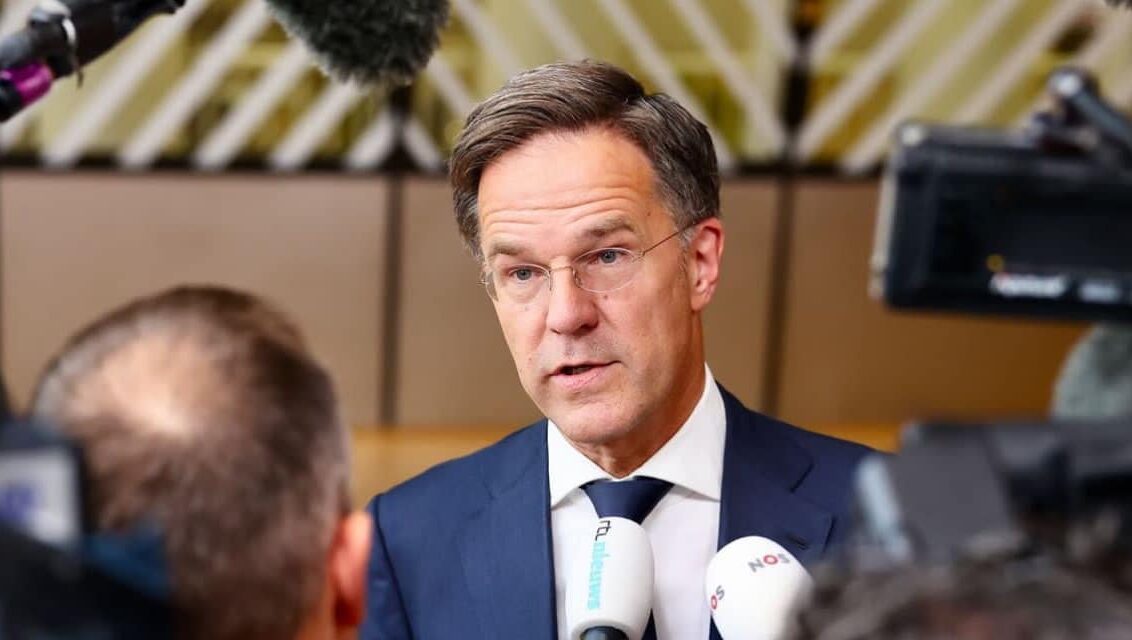Original article (in Montenegrin) was published on 2/7/2024; Authors: Jelena Jovanović
Soon after taking office, newly elected NATO Secretary General Mark Rutte became a disinformation target, particularly from Western Balkans portals.
Upon assuming his role as the head of the Alliance, the former Dutch Prime Minister immediately became a thorn in the side of those who seek to discredit NATO and its leaders at any cost.
Some media outlets in Serbia and Montenegro started spreading an allegedly old statement by Rutte denying the genocide in Srebrenica.
“New NATO chief: Srebrenica is the biggest lie,” Serbian Politika reported.
“The brightest point was when Rutte publicly apologized on behalf of the Dutch government for the slave trade in the Middle Ages. Of course, with compensation. Let us not forget another bright point of his that went unnoticed in the Netherlands. In 2017, Rutte publicly stated at a press conference: ‘Srebrenica is the biggest lie in history.’ He had major problems with Erdogan because of that. Let us not forget that the Dutch battalion was in Srebrenica,” reads the article in Politika.
Montenegrin online portal Borba soon followed suit.
“Newly elected NATO Chief: Srebrenica is the biggest lie in history.”
“Former Dutch Prime Minister and now newly elected NATO Secretary General Mark Rutte publicly stated at a 2017 press conference that ‘Srebrenica is the biggest lie in history.’ In March 2017, Rutte emphasized that the alleged massacre of 8,000 Muslims in Srebrenica in July 1995 was ‘a painful falsification of history.’ He was responding to a statement by Turkish President Recep Tayyip Erdogan, who accused Dutch peacekeeping forces of failing to prevent the crime,” Borba writes.

The same was published by online portals such as In4s, Aloonline.me, Happy, Portal083, Spona…
This information also appeared on Facebook (1,2,3,4,5)

While some media outlets that published the alleged Rutte statement offered no proof, others shared a 2017 video in which the controversial statement can supposedly be heard.
In a seven-year-old video posted on CNBC’s official channel, Rutte mentioned Srebrenica in response to a comment by then-Turkish Prime Minister and now President Recep Tayyip Erdogan.
To understand the situation in which Rutte addressed the topic of Srebrenica, it is important to consider the facts related to the then-conflict between the leaders of the Netherlands and Turkey.
In March 2017, the Dutch government denied permission to land the plane carrying Mevlut Cavusoglu, Turkey’s Foreign Minister, who intended to speak at an event in Rotterdam. This led the minister to threaten the Dutch with sanctions.
Tensions escalated further when Erdogan said the Dutch were cherishing remnants of Nazism and fascism and blamed Dutch UN peacekeepers for not preventing the Srebrenica massacre of 8,000 Bosnian Muslims in 1995.
In response to Erdogan, then-Prime Minister Rutte said:
“When something happens like last Saturday, we have to take a stance, we have to draw a line and say this is unacceptable.”
After Erdogan’s comment about Srebrenica, he added:
“I have to say that the President of Turkey today is in (an) increasingly hysterical way talking about the Netherlands. He has now made a historical and unwise remark about Srebrenica which is totally off the mark and which is totally untrue.”
This exact statement by Rutte can be heard in the said YouTube video.
After reviewing the video, it is clear that Rutte called Erdogan’s claims, which labeled the Netherlands as indirectly responsible for the Srebrenica genocide, false.
Considering these facts, it is evident that Mark Rutte never called the Srebrenica genocide fake, nor did he deny the massacre that occurred there in any way.
Therefore, the reports from the online portals and the Facebook posts claiming that the new NATO chief once called the genocide “the biggest lie in history” are rated as disinformation.
The “Disinformation” rating is given to a media report that contains a “mix“ of facts and incorrect or half-true content. In such cases, the media may not necessarily be aware of incorrect information being published alongside the true ones. Also, this grade will be given to media reports with false attributions or titles that do not reflect the text in terms of information accuracy.



